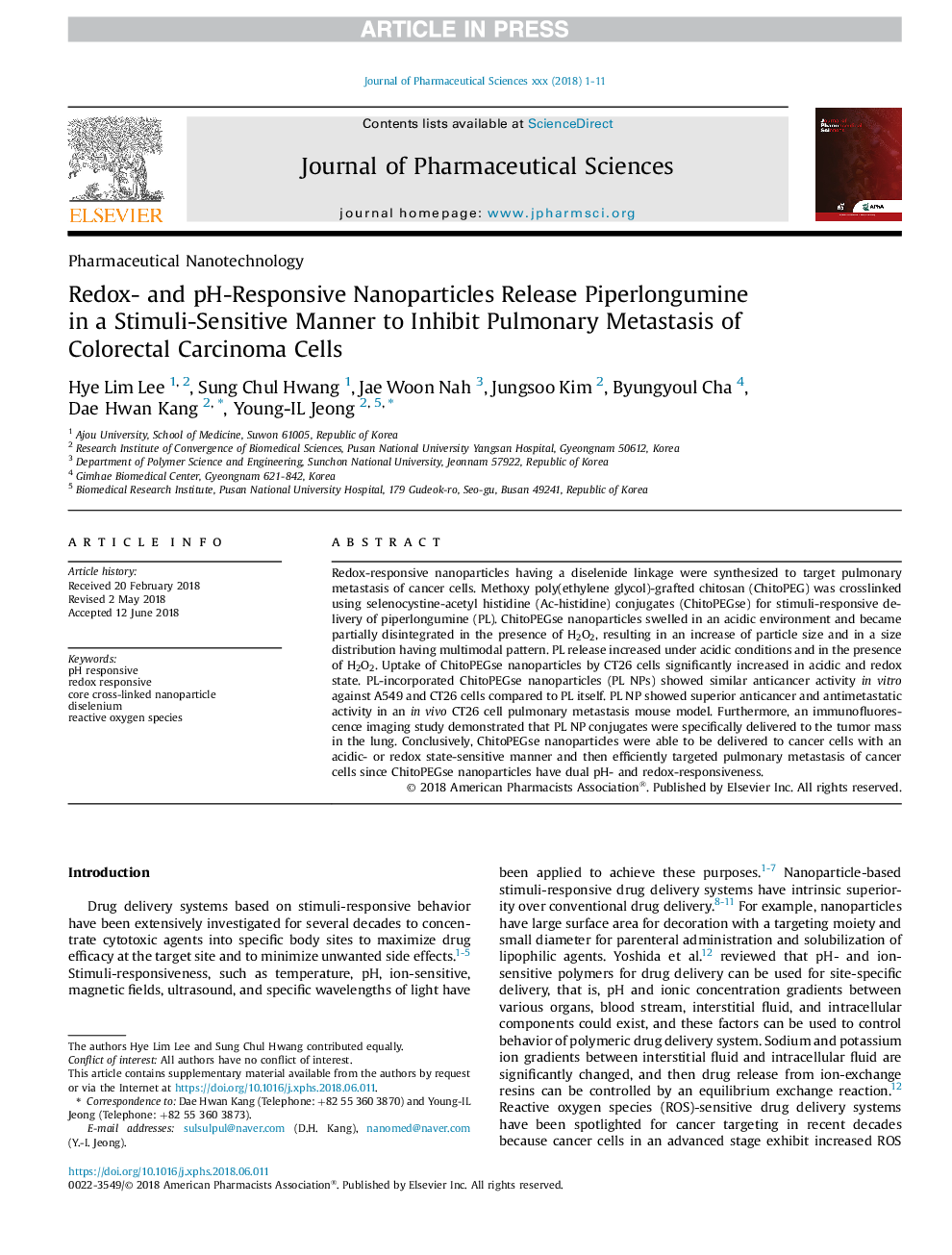| Article ID | Journal | Published Year | Pages | File Type |
|---|---|---|---|---|
| 10158206 | Journal of Pharmaceutical Sciences | 2018 | 11 Pages |
Abstract
Redox-responsive nanoparticles having a diselenide linkage were synthesized to target pulmonary metastasis of cancer cells. Methoxy poly(ethylene glycol)-grafted chitosan (ChitoPEG) was crosslinked using selenocystine-acetyl histidine (Ac-histidine) conjugates (ChitoPEGse) for stimuli-responsive delivery of piperlongumine (PL). ChitoPEGse nanoparticles swelled in an acidic environment and became partially disintegrated in the presence of H2O2, resulting in an increase of particle size and in a size distribution having multimodal pattern. PL release increased under acidic conditions and in the presence of H2O2. Uptake of ChitoPEGse nanoparticles by CT26 cells significantly increased in acidic and redox state. PL-incorporated ChitoPEGse nanoparticles (PL NPs) showed similar anticancer activity in vitro against A549 and CT26 cells compared to PL itself. PL NP showed superior anticancer and antimetastatic activity in an in vivo CT26 cell pulmonary metastasis mouse model. Furthermore, an immunofluorescence imaging study demonstrated that PL NP conjugates were specifically delivered to the tumor mass in the lung. Conclusively, ChitoPEGse nanoparticles were able to be delivered to cancer cells with an acidic- or redox state-sensitive manner and then efficiently targeted pulmonary metastasis of cancer cells since ChitoPEGse nanoparticles have dual pH- and redox-responsiveness.
Related Topics
Health Sciences
Pharmacology, Toxicology and Pharmaceutical Science
Drug Discovery
Authors
Hye Lim Lee, Sung Chul Hwang, Jae Woon Nah, Jungsoo Kim, Byungyoul Cha, Dae Hwan Kang, Young-IL Jeong,
